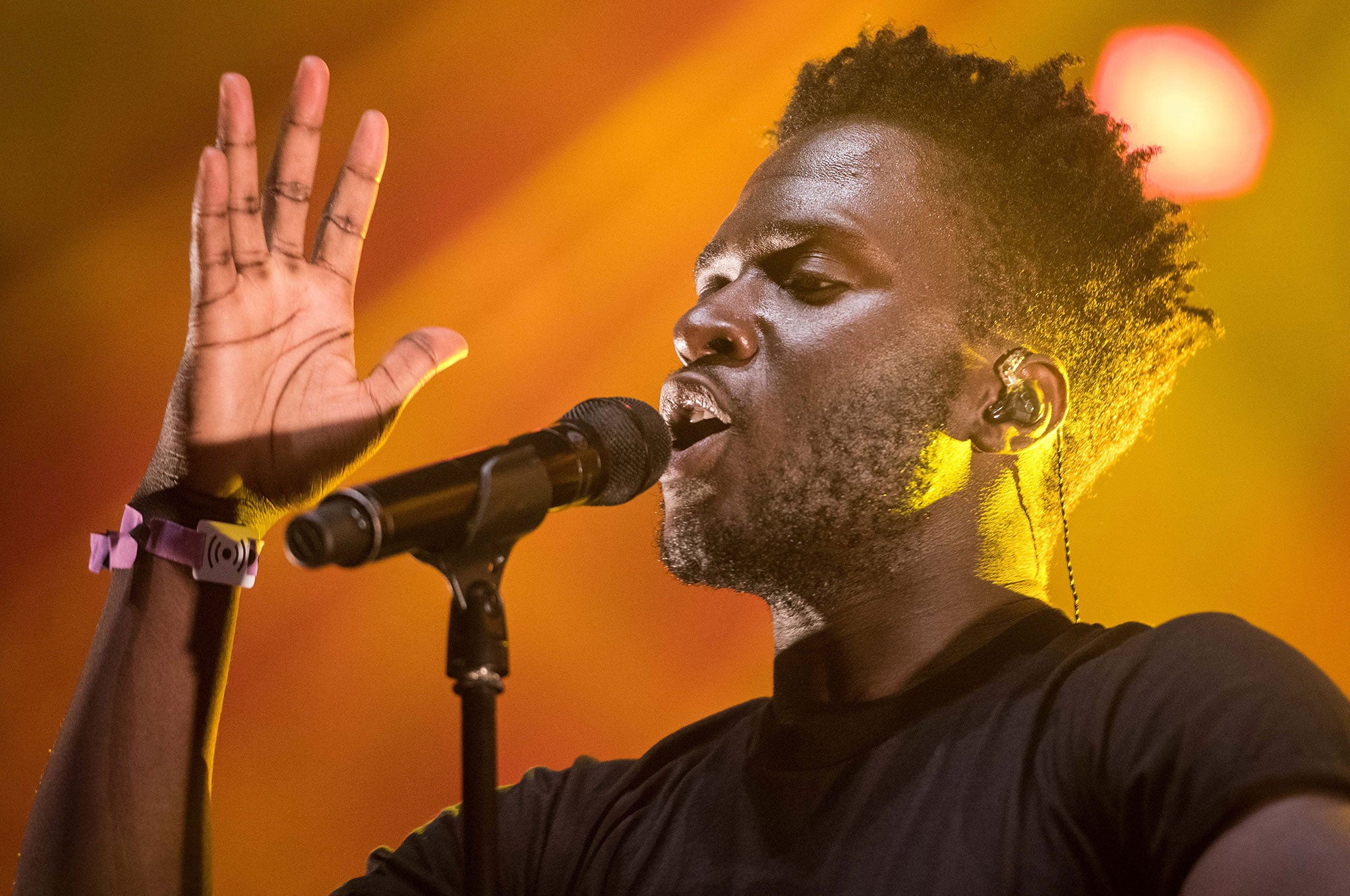Your support helps us to tell the story
From reproductive rights to climate change to Big Tech, The Independent is on the ground when the story is developing. Whether it's investigating the financials of Elon Musk's pro-Trump PAC or producing our latest documentary, 'The A Word', which shines a light on the American women fighting for reproductive rights, we know how important it is to parse out the facts from the messaging.
At such a critical moment in US history, we need reporters on the ground. Your donation allows us to keep sending journalists to speak to both sides of the story.
The Independent is trusted by Americans across the entire political spectrum. And unlike many other quality news outlets, we choose not to lock Americans out of our reporting and analysis with paywalls. We believe quality journalism should be available to everyone, paid for by those who can afford it.
Your support makes all the difference.Kwabs’s debut album has been a long time coming, its eagerly-anticipated release delayed and delayed, presumably to allow him to capitalise on his success across Europe (the single “Walk” topped the charts in Germany, Hungary and Romania). So if it seems years since his EP interpretations of songs by James Blake and Corinne Bailey Rae first attracted attention, that’s because it literally is; and it’s now almost five years since Kwabs performed as part of Goldie’s Band: By Royal Appointment talent contest. Which is an uncommonly long time, in this era of accelerating musical immediacy, to spend preparing your debut album – especially given that Kwabena Adjepong had already been lead singer with the National Youth Jazz Orchestra for three years before that.
All of which perhaps attests more to the difficulties faced by talents in niche genres like jazz and gospel when trying to break through to an increasingly homogenous mainstream: the smallest angle of incidence to the norm can send a career hurtling off at a dangerous tangent, never to return. So perhaps slow and steady is the safest way for a singer like Kwabs, whose appeal is based purely on his voice, rather than his moves, clothes and smile – because there are precious few photos around of this former foster-child beaming with happiness, and the emotional palette of Love + War strongly reflects that melancholy manner. “I hide my tears in the rain, but it doesn’t wash off the pain,” he sings on the title-track, the burly strength of his beleaguered baritone rescued from too retro an affiliation by the lithe, skeletal electro-funk backing.
This accommodation of opposites is one of the key attractions of Love + War, with the warm, intensely human timbre of Kwabs’s voice held in prickly equilibrium with the chilly electro arrangements of producers like Sohn and Dave Okumu. There’s a strange synergy in operation here, as their keyboard pads, handclap grooves and sharp, cracking synthetic snare sounds chip away at his humanity, while also steering him firmly towards the future. At their lightest, on the early favourite “Wrong or Right”, the result enables Kwabs’s voice to carry the song, ironically contrasting the song’s message that “I don’t want to be a leader”; but the atomised, jazzy approach employed on “Layback” is at odds with the rhythmic manner: the snare cracks are like staples, desperately trying to hold the song together, until it’s gradually swaddled in the looming synth pads.
Unsurprisingly, his vocals are the most appealing aspect of the album, with the emotional strength of his lead lines supported by subtle harmonies, as when Kwabs’s several backing vocals interlace engagingly behind his lead on “Walk”, which, depending on which source you use, has notched up between 35 and 50 million Spotify streams (whatever that means in terms of remuneration).
The rhythmic humming and tambourine “chain rattles” lend an intriguing chain-gang to “Forgiven”, underscoring the song’s theme of proud, unbowed guilt. And on the closing “Cheating on Me”, the gospel overtones in Kwabs’s delivery bring a new slant to the slow piano blues accompaniment, appropriate for a moment of self-revelation: “I fell apart when I couldn’t see I was cheating on me”.
This desire to develop as a man, and to understand the world in more rewarding ways, is an abiding theme of songs like these and “Father Figure” and “Perfect Ruin”. Happily, it’s a process that seems to be reflecting positively on Kwabs’s art, as well as his life. So maybe slow and steady really is the way to go, after all?

Join our commenting forum
Join thought-provoking conversations, follow other Independent readers and see their replies
Comments